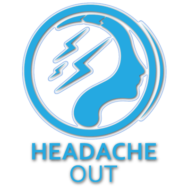Dehydration is an anomaly referred to an excessive absence of body fluid, which often occurs due to a loss of water in a greater proportion than that which has been consumed. However, this problem does not always have to occur in these circumstances, since the absence of electrolytes in the body can also lead to this situation. Dehydration, since water represents about seventy percent of our body composition, can in turn generate a series of negative consequences for our body, such as headaches.

Dehydration can cause headaches
Although medically the reason why a certain degree of body dehydration can cause migraines or headaches is not very clear, there is a theory supported by the majority of the scientific community. When our body’s water levels are significantly reduced, the body tries to conserve the remaining fluid. To do this, a series of mechanisms are activated that have a palpable contraction of the blood vessels, reducing the flow of both oxygen and blood to the brain. Given this situation, anomalies such as headaches can be generated in a relatively simple way.
An excessive intake of beverages such as alcohol or coffee, which have diuretic properties, can lead to a dehydration process, especially if we are not careful when it comes to replenishing lost water. Practicing sports or excessively strenuous activities can also cause this process, enhancing the appearance of severe headaches. These situations are easily reversible as long as we take care to hydrate ourselves properly, consuming water on a regular basis.
Sports drinks help replenish not only lost water but also excessive depletion of electrolytes. These types of substances must be used in moderation and always in a context in which we are doing physical activity, since at rest they can load us with unnecessary calories. If this dehydration process leads to a migraine, we can alleviate it through the intake of over-the-counter analgesic drugs.
